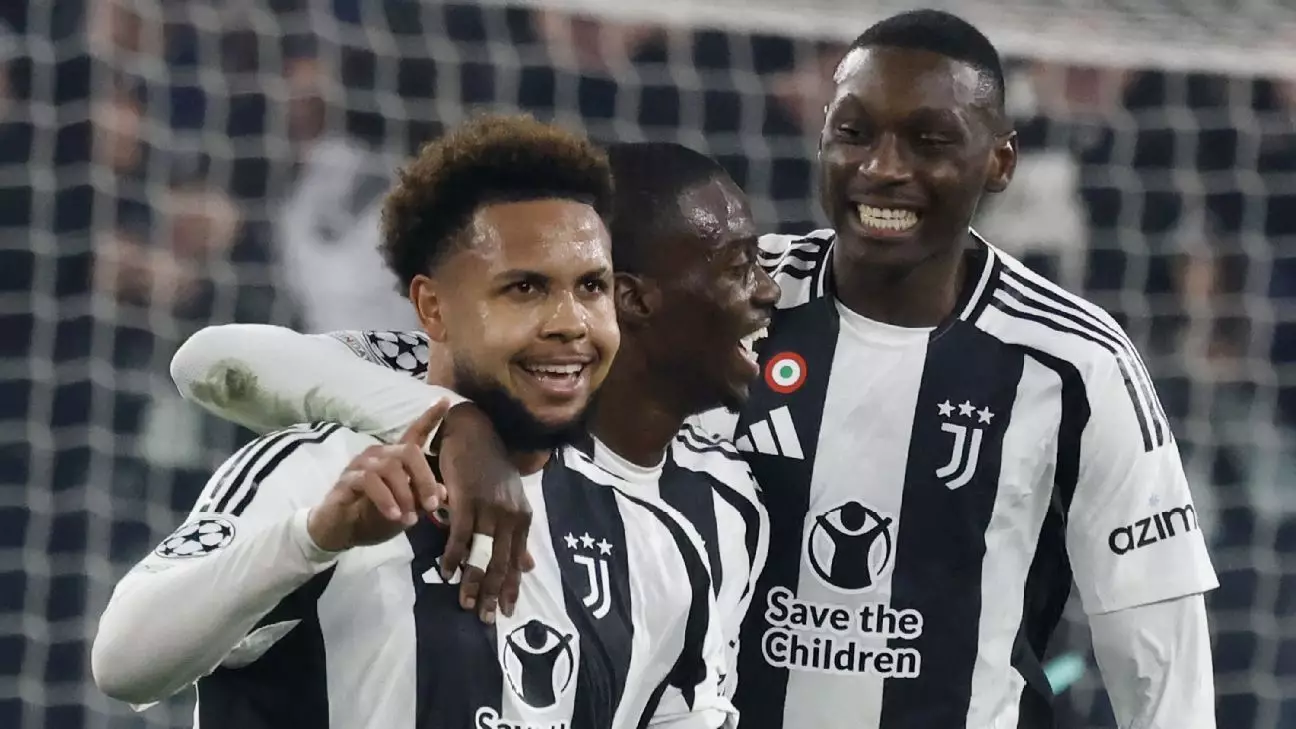Juventus faced PSV Eindhoven in a tightly contested Champions League playoff match that highlighted key performances and tactical nuances. The match showcased the resilience of both teams, but ultimately it was Weston McKennie’s standout moment that tilled the field for a 2-1 victory in favor of Juventus. His extraordinary goal, along with Samuel Mbangula’s late winner, underscores both the individual brilliance and collective efforts necessary to emerge victorious in high-stakes situations.
From the outset, Juventus struggled to unlock PSV’s robust defensive setup. The Dutch side adopted a disciplined strategy, closing down spaces and limiting the opportunities for their opponents. Juventus, on the other hand, was marked by their urgency and ambition to claim a win after a series of disappointing draws earlier in the season. This backdrop set the stage for McKennie’s breakthrough—a moment that was not just a relief for the team but indicative of the emerging threats within Juventus’ lineup.
McKennie’s goal arrived in the 34th minute, following a chaotic sequence in front of the PSV goal. His ability to maintain composure amidst deflected efforts and crowded defenses showcased his skill and determination. “It was a good goal, though I think I scored a better one against Barcelona in 2020. I was really lucky!” McKennie shared with Sky Sport Italia, shedding light on his mentality. This dexterity in scoring not only demonstrates his technical ability but also reflects the preparation behind the scenes, as he mentioned his confidence stemming from successful training sessions.
Despite the individual accolades that often accompany such standout moments in football, McKennie’s emphasis on teamwork cannot be overlooked. “The important thing isn’t scoring a goal or providing an assist, but helping the team win,” he stated, embodying a refreshing humility in a sport often dominated by individual accolades. This perspective solidifies the notion that success in football is rarely a product of singular brilliance; it requires cohesive teamwork, shared responsibilities, and mutual support.
As the match progressed, the intensity remained high, particularly after McKennie’s goal. PSV Eindhoven responded by attempting to regain control. Their equalizing goal through Ivan Perisic in the 56th minute drew an adverse reaction from Juventus fans, a testament to the historic rivalry fueling the atmosphere. Perisic’s ability to maneuver through Juventus’ defense demonstrated the unpredictable nature of knockout matches, where momentum can swing with calculated risks and clinical finishes.
Juventus’ victory was not merely reliant on McKennie’s strike; it was also marked by impressive performances from other key players, most notably substitute Samuel Mbangula, who netted the decisive goal in the 82nd minute after Walter Benitez mishandled a cross. This moment is crucial for Mbangula, as it marks his initiation into Champions League scoring and speaks volumes about the depth of talent within the squad.
Additionally, Timothy Weah’s contributions along the right flank offer further depth to the squad’s attacking capabilities. His efforts in creating opportunities reflect a growing synergy on the field—one that Juventus will need as they aim to push beyond the group stages of the Champions League.
Juventus’ path to their 2-1 win over PSV Eindhoven serves as a reminder of the beauty and complexity of football. It’s not just about individual feats of skill but rather the collective spirit embodied by a team navigating the challenges posed by a determined opponent. The journey of McKennie from a promising talent to a pivotal figure within this squad should resonate with younger aspirants, emphasizing the importance of hard work, adaptability, and the unyielding pursuit of team success. As the Champions League continues, Juventus will need to build on this momentum, embracing both their moments of brilliance and the underlying team dynamics that drive them forward.

